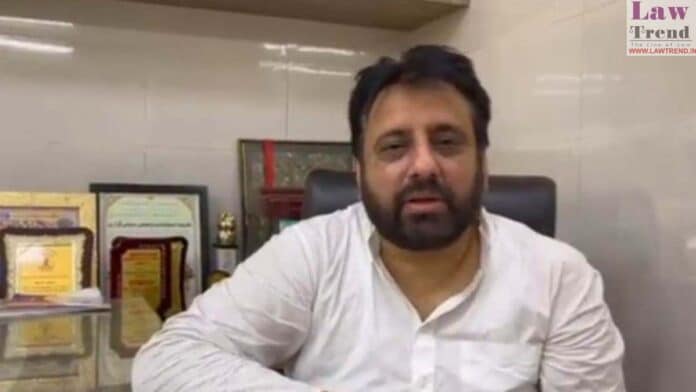The Enforcement Directorate (ED) approached the Delhi High Court on Monday, challenging a trial court’s decision that declined to recognize a chargesheet filed against AAP MLA Amanatullah Khan and subsequently led to his release in a case involving alleged financial irregularities in the Delhi Waqf Board.
Justice Manoj Kumar Ohri, presiding over the hearing, instructed the ED to submit all relevant orders issued by the trial court for review. During the proceedings, Justice Ohri highlighted the critical issue of sanction needed for prosecution, stating, “The issue of sanction is staring at you. You have to first show it to me. You have to take a concrete stand on the issue of sanction and not by mentioning it as a ground in your petition because this will be contested.”
The trial court had earlier refused to take cognizance of the charges of money laundering under the Prevention of Money Laundering Act (PMLA) against Khan, pointing out the absence of the required sanction to prosecute him. This led to the refusal to detain Khan any further, citing a lack of legal justification.
The ED, in its appeal to the high court, argued that the trial court had identified sufficient grounds to proceed against Khan after examining the prosecution’s complaint but highlighted the necessity of determining whether cognizance could be taken without the sanction. The agency’s counsel also referenced a Supreme Court decision, suggesting that the lack of sanction was a “curable defect” and that the prosecution should be permitted to seek it.
On October 29, the ED filed a 110-page first supplementary prosecution complaint, effectively a chargesheet, accusing Khan of laundering money allegedly accrued through corrupt practices within the Delhi Waqf Board. The chargesheet implicated Khan and another individual, Mariam Siddiqui, although the court found no evidence to proceed against Siddiqui and discharged her.
The ED has urged the court to recognize the chargesheet, asserting that there is sufficient evidence to prosecute Khan and others under the provisions of the PMLA. Khan was initially arrested on September 2 under the PMLA after ED searches at his residence in Delhi’s Okhla area. He has been described by the probe agency as “evasive” during questioning.
The money laundering investigation stems from two FIRs: one by the CBI concerning alleged irregularities in the Waqf Board and another concerning an alleged disproportionate assets case registered by the Delhi Police’s anti-corruption unit.




